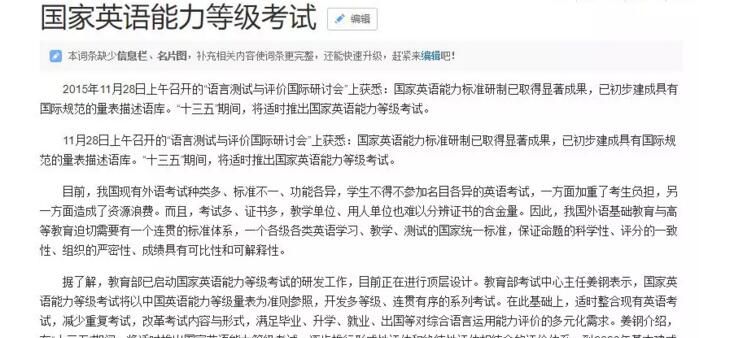LSAT模拟试题:LSAT模拟试题TEST5逻辑1c
|
11. Since 1945 pesticide use in the United Stares has increased tenfold despite an overall stability in number or acres planted. During the same period, crop loss from insects has approximately doubled, from about seven to thirteen percent. Which one of the following, if true, contributes most to explaining the paradoxical findings above? (A) Extension agents employed by state governments to advise farmers have recently advocated using smaller amounts of pesticide, though in past years they promoted heavy pesticide use. (B) While pesticide-resistant strains of insects were developing, crop rotation, which for insects disrupts a stable food supply, was gradually abandoned because farmers' eligibility to receive government crop subsidies depended on continuing to plant the same crop. (C) Since 1970 the pesticides most lethal to people have generally been replaced by less-lethal chemicals that are equally effective against insects and have a less-damaging effect on the fish in streams fed by water that runs off from treated agricultural fields. (D) Because farmers' decisions about how much land to plant are governed by their expectations about crop prices at harvest time, the amount of pesticide they apply also depends in part on expected crop prices. (E) Although some pesticides can be removed from foodstuffs through washing, others are taken up into the edible portion of plants, and consumers have begun to boycott foods containing pesticides that cannot be washed off. 12. In discussing the pros and cons of monetary union among several European nations, some politicians have claimed that living standards in the countries concerned would first have to converge if monetary union is not to lead to economic chaos This claim is plainly false, as is demonstrated by the fact that living standards diverge widely between regions within countries that nevertheless have stable economies. In attempting to refute the politicians' claim, the author does which one of the following? (A) argues that those making the claim are mistaken about a temporal relationship that has been observed (B) presents an earlier instance of the action being considered in which the predicted consequences did not occur (C) argues that the feared consequence would occur regardless of what course of action was followed (D) gives an example of a state of affairs, assumed to be relevantly similar, in which the allegedly incompatible elements coexist (E) points out that if an implicit recommendation is followed, the claim can be neither shown to be true nor shown to be false 13. Because some student demonstrations protesting his scheduled appearance have resulted in violence, the president of the Imperialist Society has been prevented from speaking about politics on campus by the dean of student affairs. Yet to deny anyone the unrestricted freedom to speak is to threaten everyone's right to free expression. Hence the dean's decision has threatened everyone's right to free expression. The pattern of reasoning displayed above is most closely paralleled in which one of the following? (A) Dr. Pacheco saved a child's life by performing emergency surgery. But surgery rarely involves any risk to the surgeon. Therefore, if an act is not heroic unless it requires the actor to take some risk. Dr. Pacheco's surgery was not heroic. (B) Because anyone who performs an act of heroism acts altruistically rather than selfishly, a society that rewards heroism encourages altruism rather than pure self-interest. (C) In order to rescue a drowning child, Isabel jumped into a freezing river. Such acts of heroism performed to save the Life of one enrich the lives of all. Hence. Isabel's action enriched the lives of all. (D) Fire fighters are often expected to perform heroically under harsh conditions. But no one is ever required to act heroically. Hence, fire fighters are often expected to perform actions they are not required to perform. (E) Acts of extreme generosity are usually above and beyond the call of duty. Therefore. most acts of extreme generosity are heroic, since all actions that are above and beyond the call of duty are heroic. 14. Professor: Members of most species are able to communicate with other members of the same species, but it is not true that all communication can be called "language." The human communication system unquestionably qualifies as language. In fact, using language is a trait without which we would not be human. Student: I understand that communication by itself is not language, but how do you know that the highly evolved communication systems of songbirds, dolphins, honeybees, and apes, for example, are not languages? The student has interpreted the professor's remarks to mean that (A) different species can have similar defining traits (B) every human trait except using language is shared by at least one other species (C) not all languages are used to communicate (D) using language is a trait humans do not share with any other species (E) humans cannot communicate with members of other species Questions 15-16 Environmentalist: An increased number of oil spills and the consequent damage to the environment indicate the need for stricter safety standards for the oil industry. Since the industry refuses to take action, it is the national government that must regulate industry safety standards. In particular, the government has to at least require oil companies to put double hulls on their tankers and to assume financial responsibility for accidents. Industry representative: The industry alone should be responsible for devising safety standards because of its expertise in handling oil and is understanding of the cost entailed. Implementing the double-hull proposal is not currently feasible because it creates new safety issues. Furthermore, the cost would be burdensome to the industry and consumers. 15. Which one of the following is an assumption on which the argument of the environmentalist depends? (A) The only effective sources of increased stringency in safety standards for oil tankers are action by the industry itself or national government regulation. (B) The requirement of two hulls on oil tankers, although initially costly, will save money over time by reducing cleanup costs. (C) The oil industry's aging fleet of tankers must either be repaired or else replaced. (D) Government safety regulations are developed in a process of negotiation with industry leaders and independent experts. (E) Environmental concerns outweigh all financial considerations when developing safety standards. |








